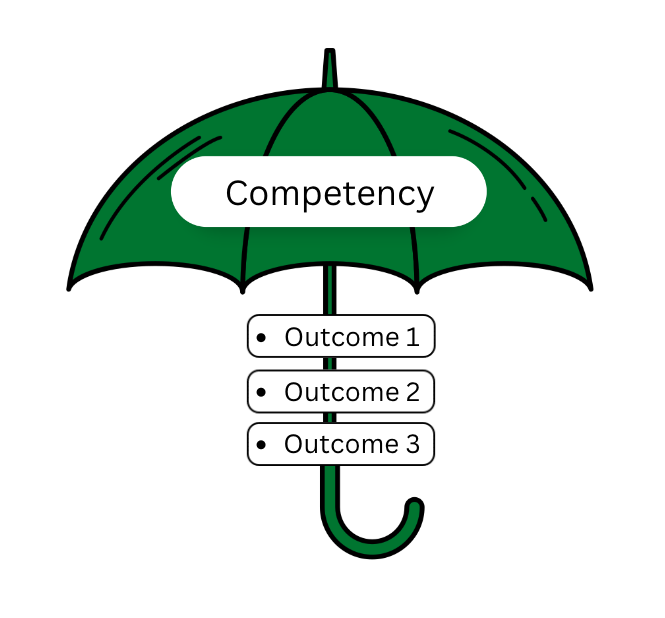Teaching the Language of our Disciplines
By Carolyn Hoessler
Bolded words (those terms highlighted in textbooks), matter for they are the building blocks of every language that allow us to communicate complex ideas, convey how we see the world and shape our questions and ways of engaging with the world to answer our questions.
But words, those collected sets of sounds, do not form a language. The relationships (syntax) and the underlying meetings & ideas (semantics) are necessary for fluency.
We see this in students’ work where the keywords are there, but applied incorrectly or are erratically irrelevant. They may start a sentence with one theorists premise and end it with another’s conclusion without noting the misalignment of essential principles. They apply one formula because a keyword appears in the word problem without seeing that the context prompts a different approach.
Continuing the comparison to learning a language, sure you can get me to memorize how to say “hi my name is…” or “where is the grocery store?” in dozens of languages. And with memorization and practice, I could become quite good at stating those phrases. Maybe through experience or prior knowledge I would know generally when to say each phrase, though I might remain unaware of the informality of “hi” and the specificity of the store. Even with the recitation, I still would not know the language.
Even if I learned to repeat a thousand phrases, I still would now know the language. I would not grasp the differences in formality, tense, or nuance connotations between good and passable. I would not know why “is the water hot” is a question, “the water is hot” is stating a fact, and “the water could be hot” giving a tentative caution. Syntax and Semantics (relationships and meaning) would be invisible, and correct application would be due to a mix of luck and surface level knowledge.
Within the discipline it is the ways we connect, distinguish and extend ideas, facts and bolded words that shape what it means to truly know our disciplines. Deep or expert learning of a discipline requires knowing the meaning, conceptual frameworks, norms, relationship between pieces, and more in addition to the piecemeal building blocks themselves.
When we teach, we need to teach beyond rote phrases, beyond the bolded words. We face the question, what does it mean to teach a discipline that we are often first-language speakers where it is just intuitive.
Curious?
- Read the key concepts & ways of knowings already identified in your discipline through existing literature on Decoding disciplines (http://decodingthedisciplines.org) or threshold concepts (listed by discipline: threshold concepts examples)
- Experience the sense of getting stuck. Try learning another discipline yourself to see what is different, learn music or dance for the first time.
- Seek out colleagues who have experience teaching another language or teaching non-majors.
Finally take inspiration. Google has created a software that can learn and create its own language. We humans have taught generations, let’s teach this next generation the language of our disciplines!


